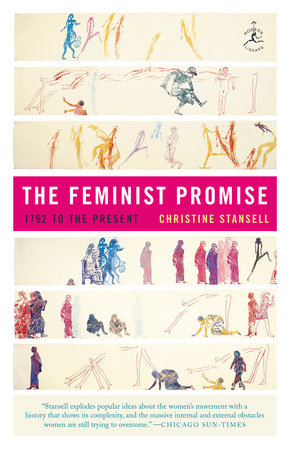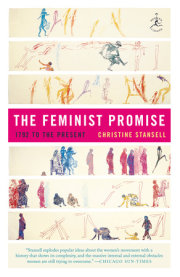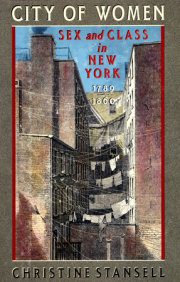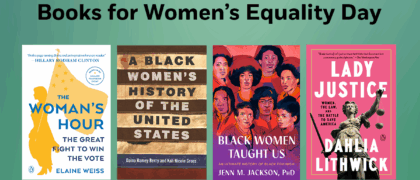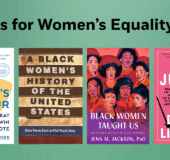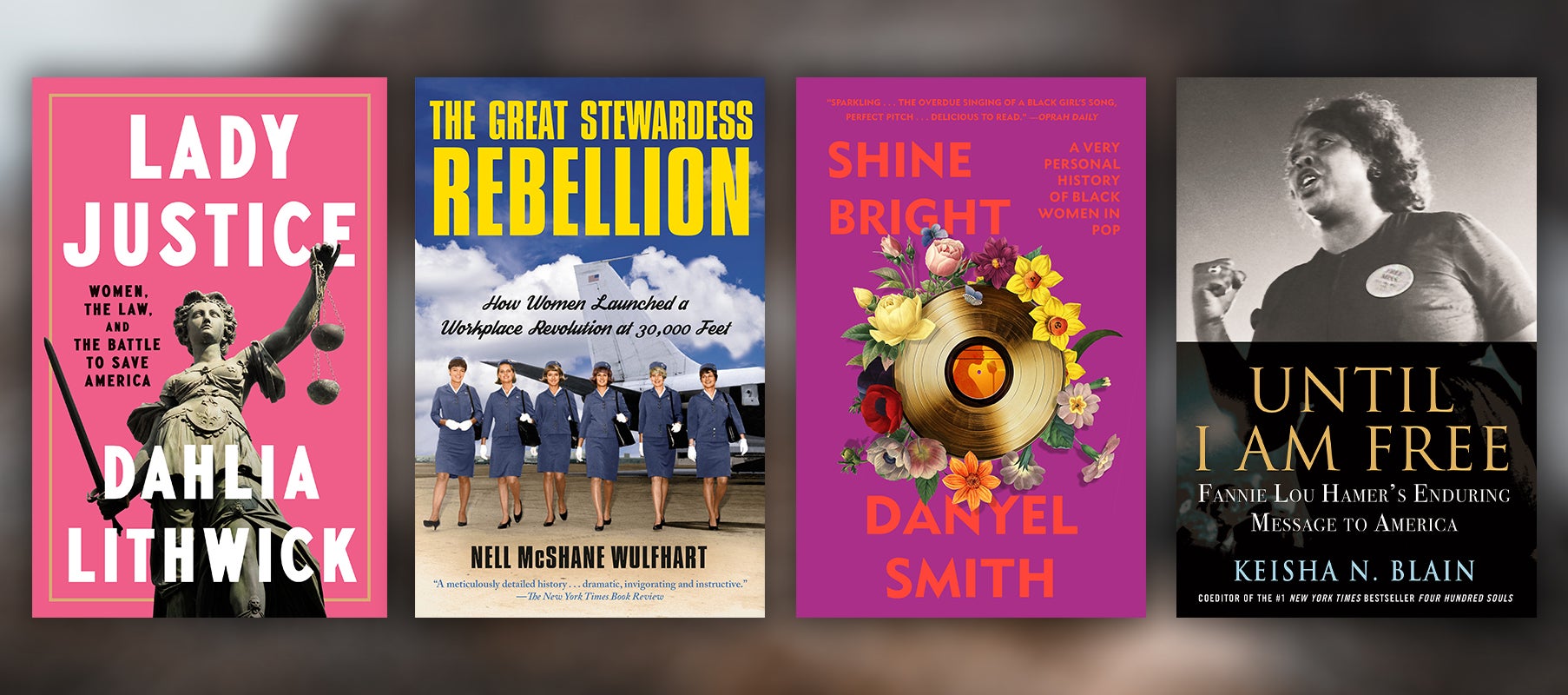Chapter One
Wild WishesThere is nothing new about men's power, or women's recognition of it. Men have dominated, ruled, lorded over, and subjugated women as long as there has been recorded history. But the ways people have understood the preeminence of one sex over the other have changed through time. Western beliefs are rooted in a Christian schema that divided human beings into ranks according to a divine plan. As God ruled the world and man ruled beasts, so monarchs (usually kings) ruled subjects, fathers ruled children, masters ruled apprentices and servants, and men governed women. Rebelling against one's place in this order amounted to defying the will of God.
In the late eighteenth century, the great world-transforming revolutions in America and France overturned these assumptions, overthrowing monarchical rule first in the American colonies and then in France and installing governments based on the consent of the governed and the rights of man. The subordination of women survived the American and French revolutions, as did slavery, whose colossal expansion in the seventeenth and eighteenth centuries introduced another stark relationship of domination. In the American Revolution, patriots barely considered the question of women, nor did they debate the emancipation of the slaves (although the British offered emancipation as an enticement to join their side). Women joined the revolution in full force, but they never pressed for clarity about their own relation to the rights the patriots claimed, and soon most of those rights were out of bounds. In the French Revolution, women were present in all phases. Some pursued rights for their sex, and in the early days they were partially successful, but in the end, they made no headway.
The outcomes were different: a stable republic in the United States, based on the political rights of white male property holders and a compromise that resulted in the Constitution's tacit protection of slavery; in France, bloodshed and repression followed by Napoleon's dictatorship. As to the universal application of the rights of man, however, the answers were the same: Women would be acknowledged as mothers, not sisters, present at the edges of the political community in their families and safely under the governance of men.
For centuries in Europe, women spoke of the indignities of being subject to men. Their laments were a kind of underground tradition in women's culture, winding through songs, proverbs, and tales. "Hard luck is the fortune of all womankind," mourns the singer in an old Anglo-American ballad. "She's always controlled, she's always confined / controlled by her father until she's a wife / then a slave to her husband the rest of her life." A sixteenth-century female poet gave a sharp, pragmatic piece of advice in "Unyoked Is Best! Happy the Woman Without a Man." "Don't hurtle yourself into marriage too soon," she urged:
Wedlock's burden is far too heavy.
They know best whom it harnessed.
So often is a wife distressed, afraid. . . .
A man oft comes home all drunk and pissed
Just when his wife had worked her fingers to the bone
(So many chores to keep a decent house!),
But if she wants to get in a word or two,
She gets to taste his fist--no more.1
Women had their place in the great chain of submission and authority like everyone else. Many ideas specified how men's and women's natures differed and why these differences placed men over women. But the determining premises came from the story of the Garden of Eden in the third chapter of Genesis, the Bible's second account of Creation, when God makes Woman from one of Adam's ribs. Disobeying God, she succumbs to the serpent's enticements and eats the fruit of the Tree of Knowledge, bringing catastrophe on humankind. Eve's weak-mindedness set the pattern: Women were judged to be by nature unruly and prone to wreck the divine order with their lust, their fickle characters, their susceptibility to Satan's wiles. Women, too, understood things this way. "Girls were brought up to believe that they ought to obey their husbands," stresses Natalie Zemon Davis, "and boys were brought up to believe that they had the power of correction over their wives."2
It was only possible to imagine otherwise by conjuring up a fantastic scenario when the normal order of things was turned upside down--on festival days and in communal rituals, when life went topsy-turvy and women acted like men and sometimes vice versa.3 But except for those extraordinary moments, men's power over women was a fact of life. Status was complicated and power was never divvied up tidily, with all men holding power over all women: The lady of the manor lorded it over male commoners. But no matter how highborn the woman, she was first and foremost subject to her husband. And because it was impossible to live outside family networks, virtually all adult women were destined for marriage.
Political authority was explicitly modeled on male authority in the family. British common law--which was, of course, the law of the North American colonies--designated the family a realm of government in itself, a kind of gendered jurisdiction where fathers and husbands ruled and (theoretically) protected women, children, laborers, and servants. In a satisfying marriage, a woman saw herself as a man's helpmate, his support and complement, her talents and labor put to the uses of their joint household. Nonetheless, she had no legal standing: Husband and wife were one, with the husband being the "one" before the law. "The very being or legal existence of the woman is suspended during the marriage, or at least is incorporated and consolidated into that of the husband," explained Sir William Blackstone, whose section on marriage in his 1765 Commentaries codified English common law.4 Blackstone gave common law pride of place over other jurisdictions in England--church law and courts of equity--that at times did recognize women's separate legal identity. He thus authorized a body of law especially hostile to women. A husband had rights to any property his wife brought to the marriage, the fruits of her labor, the property they accumulated together, and custody of their children. The principle of coverture pertained: A man "covered," or stood in place of his dependents before the outside world, including the law and the church (a reminder of coverture today is the custom of a woman taking her husband's name). A wife owed her husband compliance and labor; in return, husbands owed wives economic support and protection. Each owed the other sexual fidelity: Legal monogamy seamlessly bound the couple to Christian doctrine.
But in any social order there are cracks that thoughtful people notice and probe, widening the distance between what is supposed to be and what is. Isolated and unaware of each other, investigators and skeptics over the centuries wondered about women's place. Challenges to prevailing notions of female incapacities began to appear with some regularity in seventeenth-century France and England, from learned ladies who were well connected--Marie le Jars de Gournay, Mary Astell--but also from open-minded men: Francois Poullain de la Barre, influenced by the principles of Descartes, proposed in the 1670s that the mind had no sex. Although isolated from one another by time and geography, these writers made similar defenses of women's education and criticisms of their position in marriage. Mary Astell, writing in an era when the transatlantic trade in human beings boomed, compared marriage to slavery. "If all Men are born free, how is it that all Women are born slaves?" she inquired.5
Copyright © 2010 by Christine Stansell. All rights reserved. No part of this excerpt may be reproduced or reprinted without permission in writing from the publisher.

